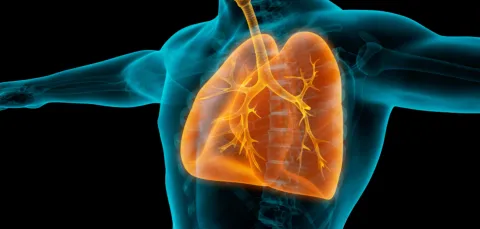Our medical and surgical oncology research teams have collaborated together to carry out large-scale clinical trials. The researchers are focusing on colorectal cancer, a common cancer with high societal impact, and rarer conditions such as biliary tract cancer.
History and impact
FACS trial - 2003-2014
The Follow-up After Colorectal Surgery (FACS) trial, led by Professor John Primrose, explored the use of computer tomography (CT) and tumour marker examination after colorectal surgery.
In a follow-up of 1202 patients with completely resected colorectal cancer, the research found that more intensive monitoring adds no benefit to the patient, meaning cost and patient inconvenience can be reduced signficantly.
The FACS trial has informed all new guidance on colorectal cancer globally, ever since the results were published in 2014.
In the UK, this has resulted in a national of around £40 million per year, mainly by reducing the number of CT scans.
BILCAP trial - 2004-2009
The BILCAP trial examined the use of capecitabine chemotherapy in 447 patients with resected biliary tract cancer, showing an improved medial overall survival of 16% in patients, with no measurable reduction in quality of life.
Before the trial, patients had not received any post-operative treatment and only put under clinical observation.
Based on a conservative estimate of 500,000 annual biliary tract cancer cases worldwide, the implementation of this approach could result in 4000 lives saved every year.
"We have demonstrated a 16-month improvement in survival in the chemotherapy treated patients and this has been adopted as global standard of care."
John Primrose - Professor of Surgery
Ongoing research
New EPOC trial - 2005 to present
The New EPOC trial involves 257 patients with metastatic colorectal cancer. It has demonstrated that adding cetuximab - a targeted cancer drug - to conventional chemotherapy results in a 2-year reduction in overall survival in patients with operably colorectal liver metastases.
Changing this practice has had a major impact on the survival of patients, as outlined in European Society of Medical Oncology guidelines and a recent Lancet Editorial.
SCOT study - 2008 to present
The Short Course Oncology Therapy study, led by Professor Tim Iveson, is the largest on adjuvant chemotherapy in colorectal cancer ever conducted. It has demonstrated that, for most patients, 3 months of chemotherapy after surgery is sufficient, halving the previous treatment duration of 6 months.
These results have been incorporated into international guidelines, with National Institute for Health and Care Excellence (NICE) guidance recommending that halving this treatment reduces time and cost. Patients now experience side effects for a shorter time and are less likely to suffer from long-term toxicity.
An economic analysis of SCOT suggests a saving of almost £5000 per patient. If this approach were applied to just 50% of global stage 3 patients receiving post-operative chemotherapy, it could save around £1.7 billion every year.
Trials for minimally invasive surgery (MIS) - 2015 to present
MIS is developing rapidly in treatments for the liver and pancreas, but it is generally technology-driven and shows little evidence of patient benefit.
Professor Primrose and his colleagues have critically examined the development of MIS in two Cancer Research UK trials - ORANGE 2 and ORANGE SEGMENTS. They have organised two global consensus conferences to establish guidelines for the safer introduction of MIS.
Their recommendation was included in the 2018 NICE guidance on pancreas cancer.



